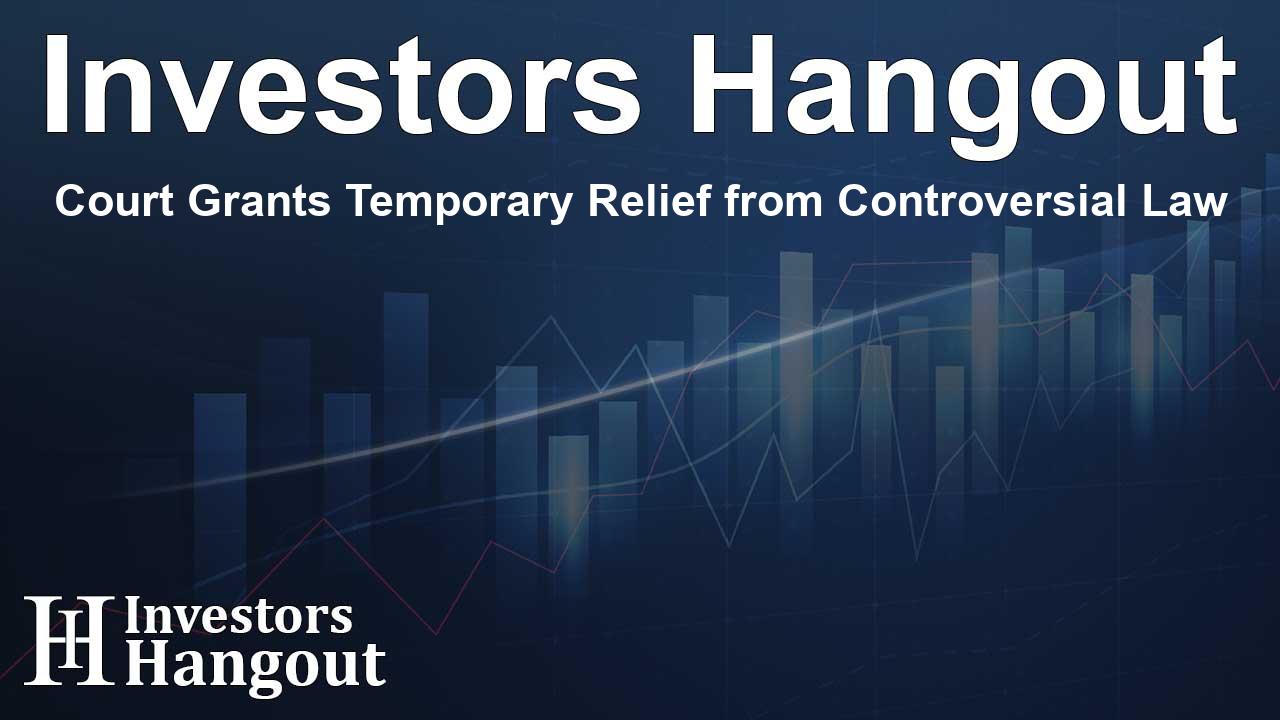Court Grants Temporary Relief from Controversial Law

Court Grants Temporary Relief from Controversial Law
A recent ruling from a U.S. appeals court has put a significant pause on the enforcement of a controversial anti-money laundering law. This law, which is tied to the Corporate Transparency Act, requires various corporate entities to disclose the identities of their actual beneficial owners to the U.S. Treasury Department.
Background on the Ruling
The decision came from the 5th U.S. Circuit Court of Appeals, located in New Orleans. They issued the ruling to reinstate a nationwide injunction that a federal judge in Texas had previously put in place, declaring that the Corporate Transparency Act was unconstitutional. This decision marks a notable shift for the court.
Initially, earlier this week, a three-judge panel of the 5th Circuit had put the injunction on hold. This was done at the request of the U.S. Department of Justice as they sought to appeal the decision made by the Texas judge. However, after further deliberation, a different panel of judges ruled to keep the enforcement of the law paused.
Implications for Businesses
This ruling is particularly significant for businesses as it pushes back the compliance deadline, which was set for January 13. Until this order came through, most companies were gearing up to submit their initial reports to the Financial Crimes Enforcement Network (FinCEN).
A coalition that includes the National Federation of Independent Business, alongside multiple small enterprises, successfully challenged the law. They argued through their lawyers at the Center for Individual Rights that this legislation infringes upon constitutional rights.
Statements from Involved Parties
Todd Gaziano, president of the Center for Individual Rights, expressed that the injunction was necessary, claiming, "Given that we have established that the CTA is likely unconstitutional, this intrusive form of government surveillance should be halted until the law's fate is finally resolved." Although FinCEN had no immediate comment on the decision, the implications of this ruling could be far-reaching.
For context, the Corporate Transparency Act, implemented in 2021, mandates that corporations and limited liability companies report their beneficial ownership information to FinCEN. This initiative aims to combat money laundering and other financial crimes by enhancing transparency.
Support for the Legislation
Advocates for the Corporate Transparency Act argue that this law is vital in addressing the growing trend of financial crime, particularly in the U.S. That the country has become an attractive location for illicit activity, especially as criminals often create limited liability companies under state regulations to hide their involvement.
However, the law has faced significant pushback. U.S. District Judge Amos Mazzant, stationed in Sherman, Texas, previously stated that Congress did not possess the authority to enact this law. He described the statute as "quasi-Orwellian" and brought attention to potential violations of states' rights under the Tenth Amendment to the Constitution.
What’s Next?
As the legal battle continues, the eventual outcome of this law remains uncertain. The 5th Circuit will be tasked with a thorough review of the arguments from both sides before any final decisions are made regarding the future of this important piece of legislation.
Frequently Asked Questions
What is the Corporate Transparency Act?
The Corporate Transparency Act requires corporations and LLCs to disclose their beneficial owners to prevent money laundering and enhance financial transparency.
Why did the appeals court halt enforcement of the law?
The 5th Circuit paused enforcement to maintain the constitutional status quo while further reviewing the law's merits.
What was the original compliance deadline for reporting?
Businesses originally faced a deadline of January 13 to submit their beneficial ownership reports to FinCEN.
Who challenged the law?
The National Federation of Independent Business and several small businesses challenged the law, arguing it infringes on constitutional rights.
What are the implications of this ruling for businesses?
The ruling extends the time companies have to comply with reporting requirements, delaying potential regulatory penalties.
About Investors Hangout
Investors Hangout is a leading online stock forum for financial discussion and learning, offering a wide range of free tools and resources. It draws in traders of all levels, who exchange market knowledge, investigate trading tactics, and keep an eye on industry developments in real time. Featuring financial articles, stock message boards, quotes, charts, company profiles, and live news updates. Through cooperative learning and a wealth of informational resources, it helps users from novices creating their first portfolios to experts honing their techniques. Join Investors Hangout today: https://investorshangout.com/
Disclaimer: The content of this article is solely for general informational purposes only; it does not represent legal, financial, or investment advice. Investors Hangout does not offer financial advice; the author is not a licensed financial advisor. Consult a qualified advisor before making any financial or investment decisions based on this article. The author's interpretation of publicly available data shapes the opinions presented here; as a result, they should not be taken as advice to purchase, sell, or hold any securities mentioned or any other investments. The author does not guarantee the accuracy, completeness, or timeliness of any material, providing it "as is." Information and market conditions may change; past performance is not indicative of future outcomes. If any of the material offered here is inaccurate, please contact us for corrections.